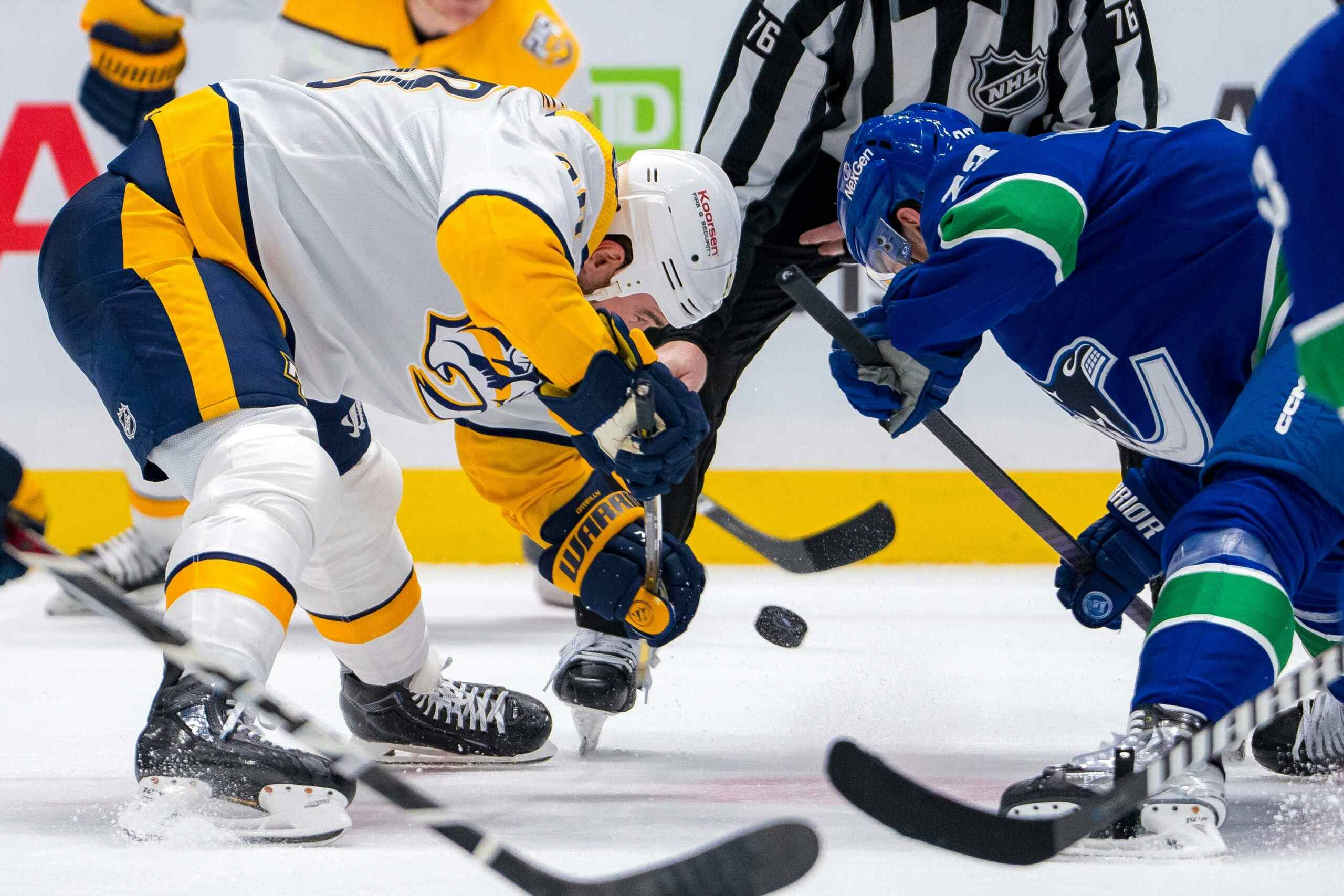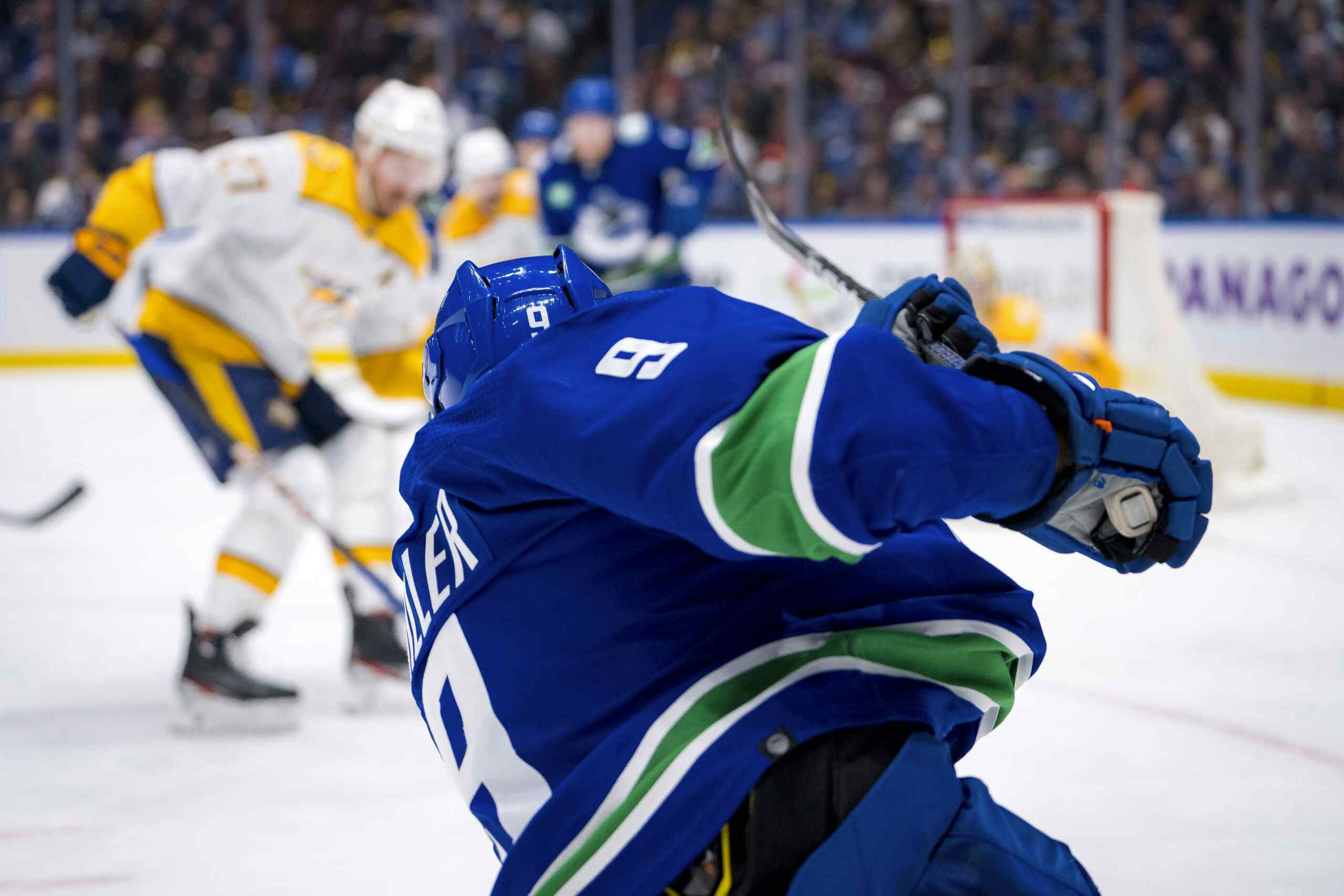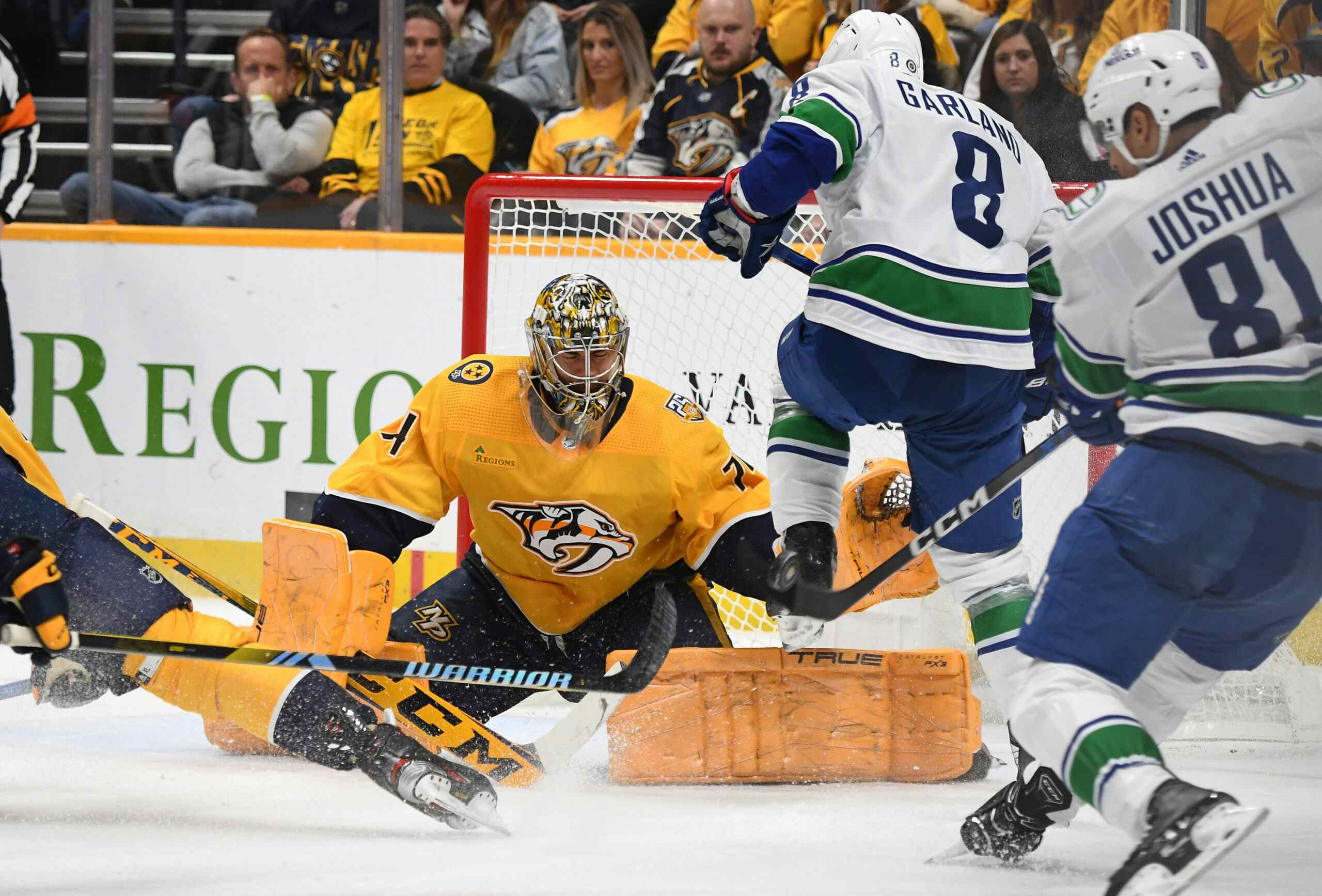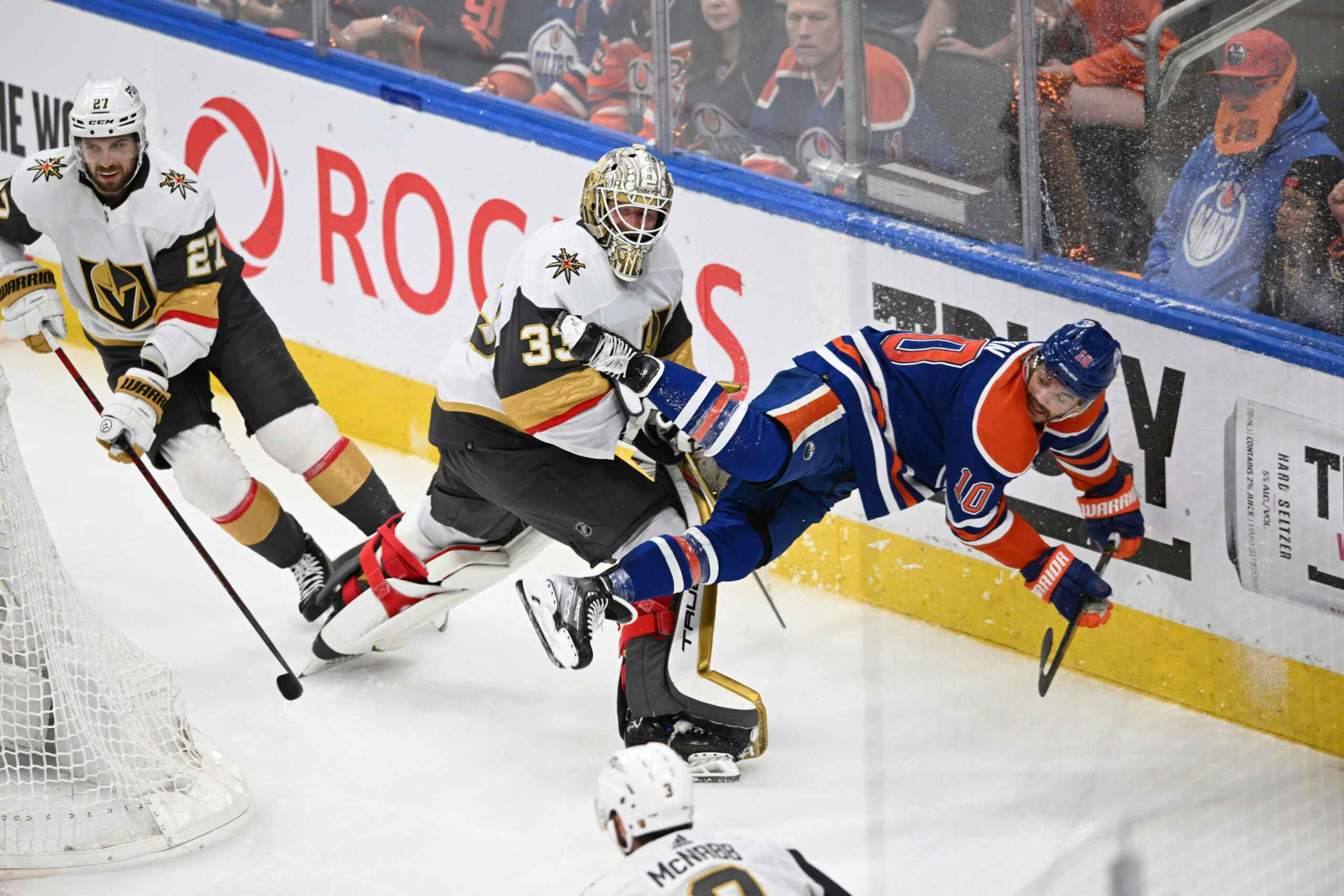Why Are The Canucks Too Easy To Play Against?
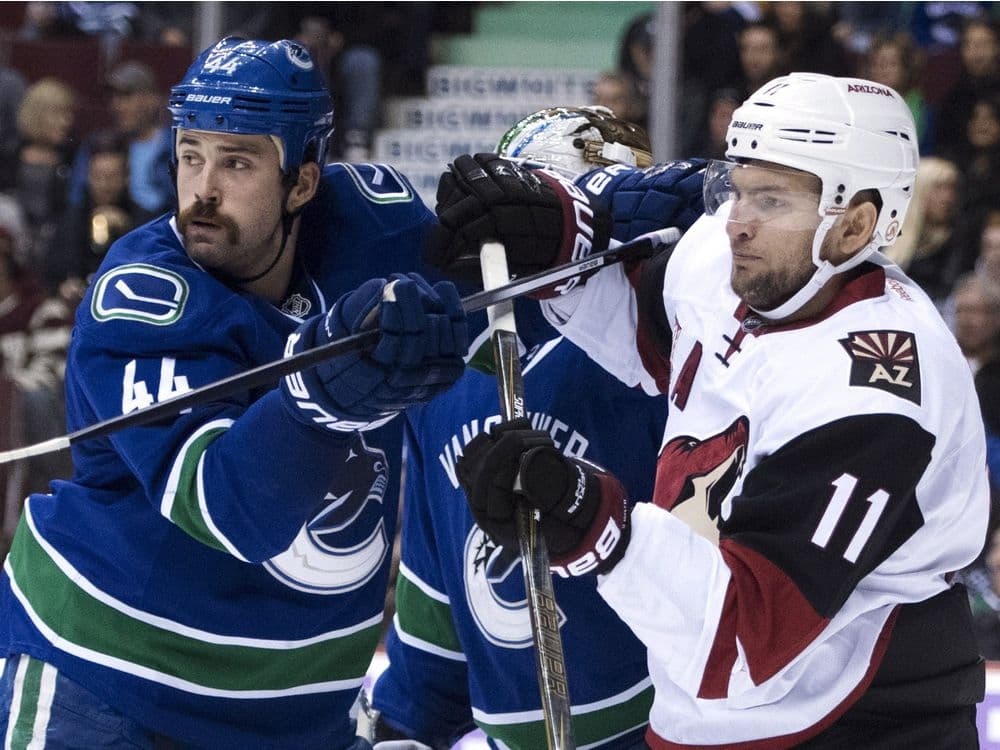
7 years ago
It’s not a stretch to suggest the Vancouver Canucks are an easy team to play against most nights. This should be obvious to anyone with even the most basic knowledge about hockey. They spend too much time in their own zone; they struggle to maintain possession; they can’t seem to push nearly as much as you’d expect from a team that trails as often as they do.
If you can’t abide the eye test, the Canucks struggles are readily apparent with even the most casual glance at the underlying numbers. They’re 25th in scoring chance differential, 27th in score and venue-adjusted shot share and when we adjust this figure to exclude blocked shots, that number drops to 28th. By the Corsica.Hockey model for expected goals, the Canucks rank third-worst in the NHL.
Suggesting the Canucks have been an awful team is far from controversial. It’s when we begin to discuss the wheres and whys that arguments arise.
If you’re Ben Kuzma of The Province, the problem begins with the team’s lack of physicality, as he pointed out in his article on Wednesday:
“At one point amid the unchallenged muggings, elbows and sticks to the ribs, one thought came to mind Tuesday at Rogers Arena.Derek Dorsett and Erik Gudbranson have never looked so good.And that says something because they’re still rehabbing neck and wrist surgeries, respectively, and their true effectiveness as grit-and-grind guys won’t be known until next fall. Which brings us back to Tuesday.When the Anaheim Ducks imposed their will on the transitioning and tentative Vancouver Canucks, it placed one of many problems for a troubled NHL team back on the front-burner. Simply put, the Canucks are too easy to play against.They often display gap-controlling structure and great goaltending to stay in games, but they have the third-fewest hits. Their top basher is the injured Joseph Cramarossa, who ranked 80th Wednesday with 139 combined hits in 59 games with Anaheim and Vancouver. Nikita Tryamkin is 87th with 129 hits in 60 games and Luca Sbisa is 104th with 120 hits in 76 games.”
Derek Dorsett and Erik Gudbranson have never looked so good? I can’t help but feel like that has something to do with the fact that no one has seen either play in the calendar year 2017. Sure, they can dole out the occasional hit and punch the odd face, but does that really matter? It’s debatable.
Ironically, Vancouver’s scorekeepers credited the Canucks with six more hits than the Ducks in Tuesday night’s game. I can’t say for sure why that is, but I imagine it has something to do with the fact that Anaheim had the puck an awful lot more than Vancouver.
Even if we ignore home-ice biases, and the many other inherent issues the NHL has with tracking hit stats, the distribution between hits and wins over the past decade is completely random. So, are the Canucks missing Dorsett and Gudbranson? I’m skeptical.
The Canucks are 28th in hits per game in 2016-17 according to FOXsports.com, and they’re sandwiched between five playoff teams. Ahead of them are the Calgary Flames, Columbus Blue Jackets, and San Jose Sharks; lagging just behind Vancouver are the Minnesota Wild, who sit second in their division and fifth in overall league standings. In last place, we have the Chicago Blackhawks, arguably the best team in the salary cap era. That’s nothing new for Chicago — they’ve alternated finishing 29th or 30th in hits in each of these past four years.
That’s not to say hitting, or physicality, or whatever you want to call it isn’t an essential element of the game. In contrast, the Los Angeles Kings are routinely atop the league in hits per game, and have probably been the most consistently strong team of the past five years, aside from the Blackhawks.
I have no desire to revisit the so-called “media wars” that transpired earlier this month. I’ve no quarrel with Kuzma, and I think his overarching point carries a certain amount of water. I just believe he’s missing the forest for the trees, and that serves as an excellent jumping-off point to talk about being hard to play against, and our previously held notions about what that means.
The funny thing about sports media, be it mainstream, on the blogosphere, or otherwise, is that we all rely on statistics to help us tell our stories. The good folks at Sun Media or TSN 1040 may argue the merits of using statistics to tell compelling stories, but the truth is that we all use them to add colour or context to our thoughts. The difference lies in what statistics we decide to use. In digital media, it’s Corsi, Fenwick or expected goals. In the mainstream, it’s more likely to be goals, assists, plus-minus or in this case, hits.
That’s where I take issue. I’ll readily admit that all statistics have the potential to be misleading without context, but none are more misleading than hits. Not only are they poorly tracked, but they’re also a poor indicator of what they’re meant to measure: physicality, and more importantly, how difficult to play against someone or some team is.
I don’t deny that teams shouldn’t try being difficult to handle on a nightly basis. It’s just that looking at hits, (or worse yet, fights,) is a painfully effortless way to measure whether or not a team can make life living hell for their opponents.
Our ideas about physicality and being “hard to play against” need to change. They need to enter the 21st century. The common adage amongst the so-called “analytics community” is that hits are meaningless because to hit, your opposition has to have the puck. I’m sympathetic to that viewpoint, but the success of teams like the Kings in the past indicates there may be holes in that line of thinking.
Physical play is important insofar as it drives results. If you don’t have the puck, hitting can help you regain possession. That’s important, but physical play with the puck is equally or perhaps even more important. The abilities to win board battles, get to the front of the net, and play in traffic are all physical attributes that are just as important, but the tracking of those statistics isn’t nearly as commonplace. Micro-statistic tracking companies like SportlogIQ are going a long way to making the tracking of those attributes more mainstream, but we still have a long way to go.
When we look at the Canucks, we can see that they’ve struggled regarding being hard to play against, but that has little to do with being 28th in hits.
In the Sedins heydey, their opposition loathed playing against them. If you don’t believe me, ask any savvy fan of any team from the old Northwest Division that had to watch the Sedins protect the puck along the boards and come out of the corners with possession of the puck almost every time they generated offensive zone time.
Their ability to do so has declined. I’m inclined to believe that has more to do with their win/loss record than hitting. So too does the absence of Chris Tanev for much of the season.
Make no mistake, Tanev is a physical player, just not in the way we’re accustomed to seeing. He’s routinely among the league leaders in hits taken. While that may not seem to be indicative of the “warrior” culture the NHL fetishizes on a daily basis, it indicates a willingness to adhere to the adage of “taking the hit to make the play”. That’s something I’d personally place more value on than the ability to lay those same hits on a player that has possession of the puck.
At the end of the day, things like hits, or capacity to win puck battles, or any other physical attribute are just inputs. What we should really focus on are results, and the Canucks just aren’t producing them, whether you’re looking at wins and losses or the underlying shot metrics.
There’s more than one way to skin a cat, so to speak. Tactical adjustments are significant. Some of that involves physical play, and yes, hits. Some teams have had tremendous success laying the body, while others live by the adage that speed kills. It’s about working with what you have and making adjustments to get the most out of your players.
Where the Canucks stand right now, I think they need to focus on just playing good hockey before they worry about their hit totals.
I don’t see Derek Dorsett or Erik Gudbranson helping that cause.

